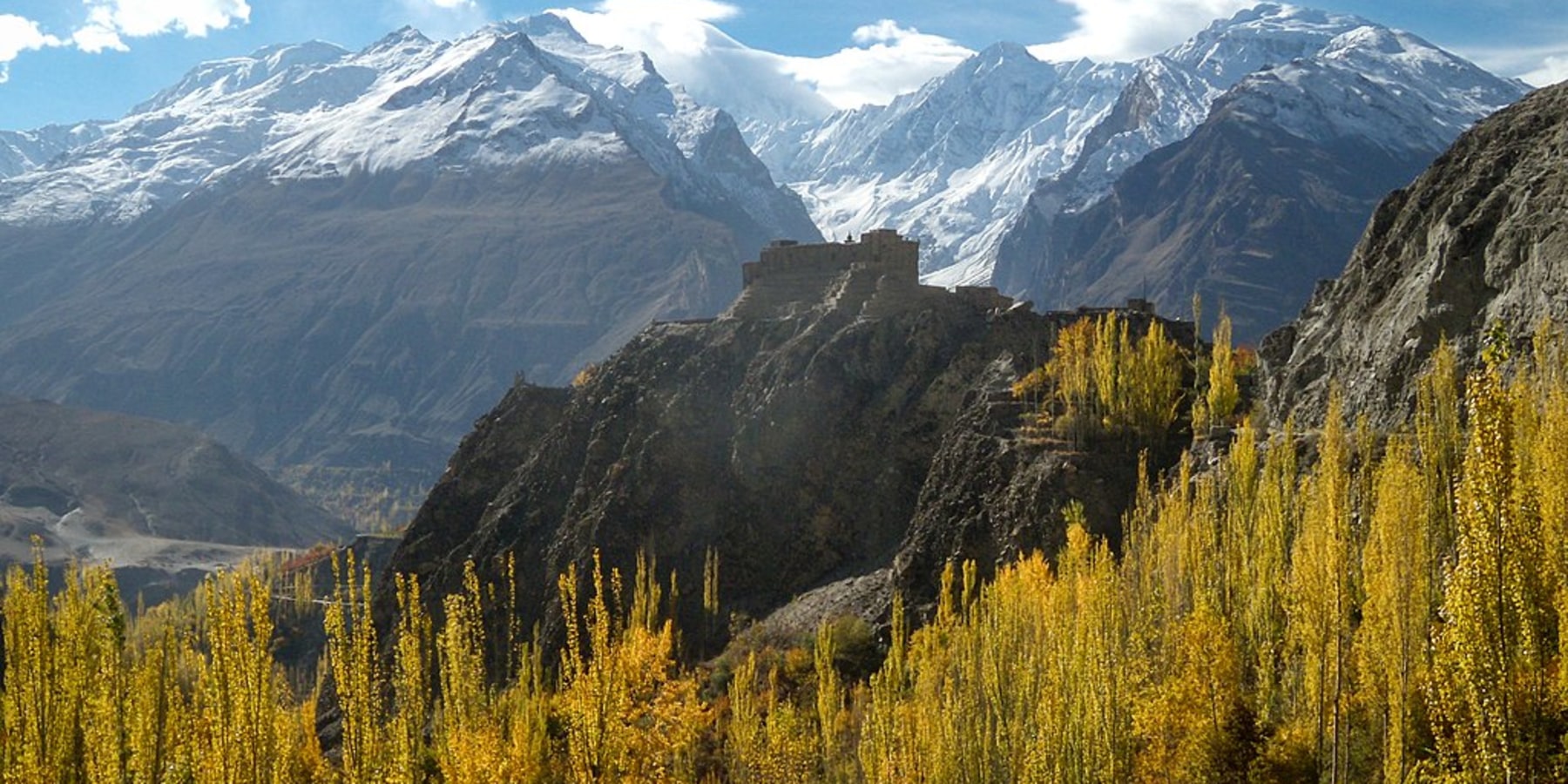
Buddhism and, to a lesser extent, Bön were the main religions in the area. The region has several surviving Buddhist archaeological sites, such as the Sacred Rock of Hunza. Nearby are former sites of Buddhist shelters. Hunza valley was central as a trading route from Central Asia to the subcontinent. It also protected Buddhist missionaries and monks visiting the subcontinent, and the region played a significant role in spreading Buddhism throughout Asia.
The region was a Buddhist majority till the 15th century, before the arrival of Islam in this region. Since then, most of the population has converted to Islam. Thus, the presence of Buddhism in this region has now been limited to archaeological sites, as the remaining Buddhists of this region moved east to Leh, where Buddhism is the majority religion. The region has many works of graffiti in the ancient Brahmi script written on rocks, produced by Buddhist monks as a form of worship and culture. With most locals converting to Islam, they had been mainly left ignored, destroyed, or forgotten but are now being restored.
"Hunza was formerly a princely state bordering Xinjiang (autonomous region of China) to the northeast and Pamir to the northwest, which survived until 1974 when Zulfikar Ali Bhutto finally dissolved it. The state bordered the Gilgit Agency to the south and the former princely state of Nagar to the east. The state capital was the town of Baltit (also known as Karimabad); another old settlement is Ganish Village which means 'Baba Ganesh village' (a Buddhist name).
Hunza was an independent principality for more than 900 years, and then in the early 1800s, Hunza played a vital role in the British "Great Game".In 1891 Hunza was captured by the British Empire. The ruler of Hunza, Mir Safdar Ali Khan, fled to Kashgar, China, and the British army installed his brother Mir Nazim Khan (1892-1938), as a puppet ruler of Hunza Valley. Still, all orders were passed by British officers who were appointed in the capital Gilgit."

